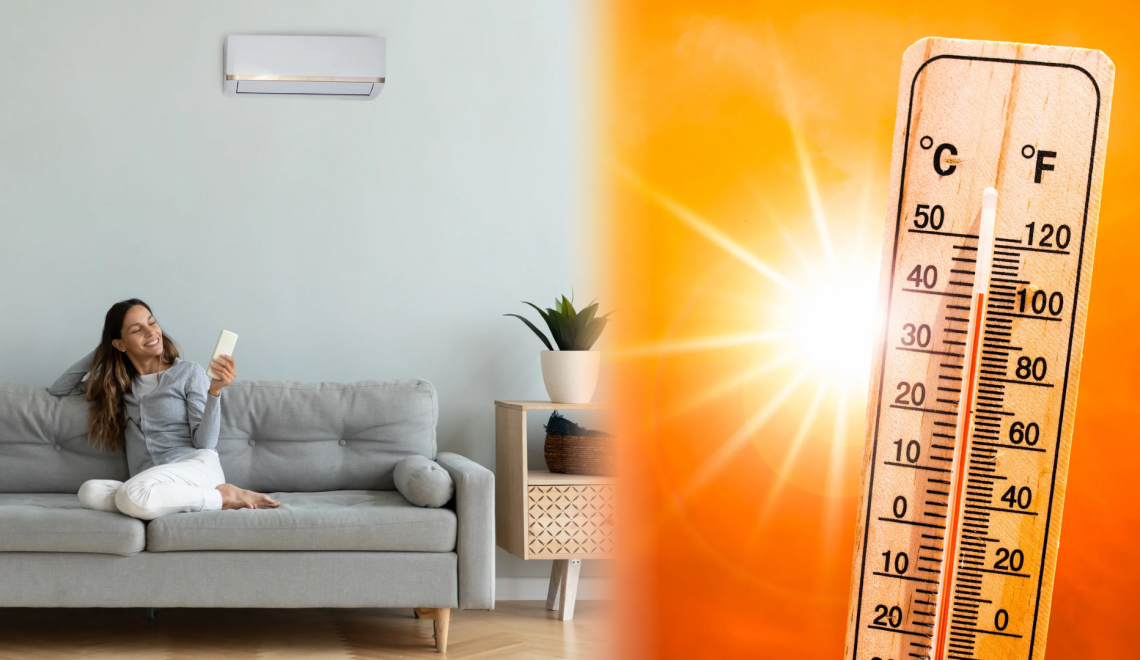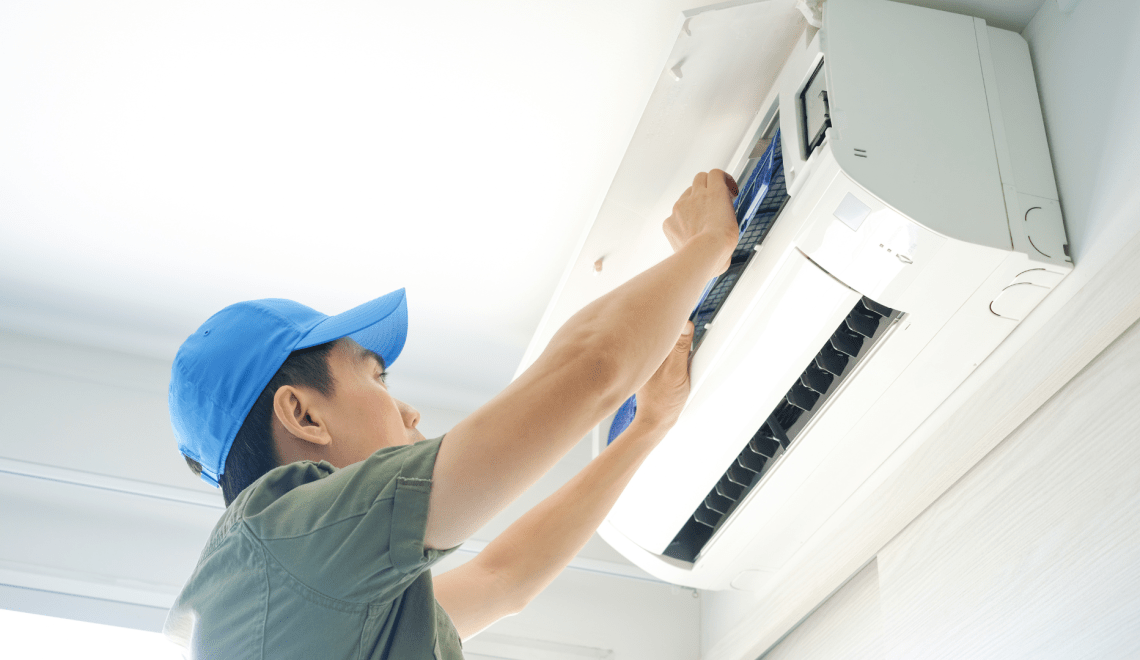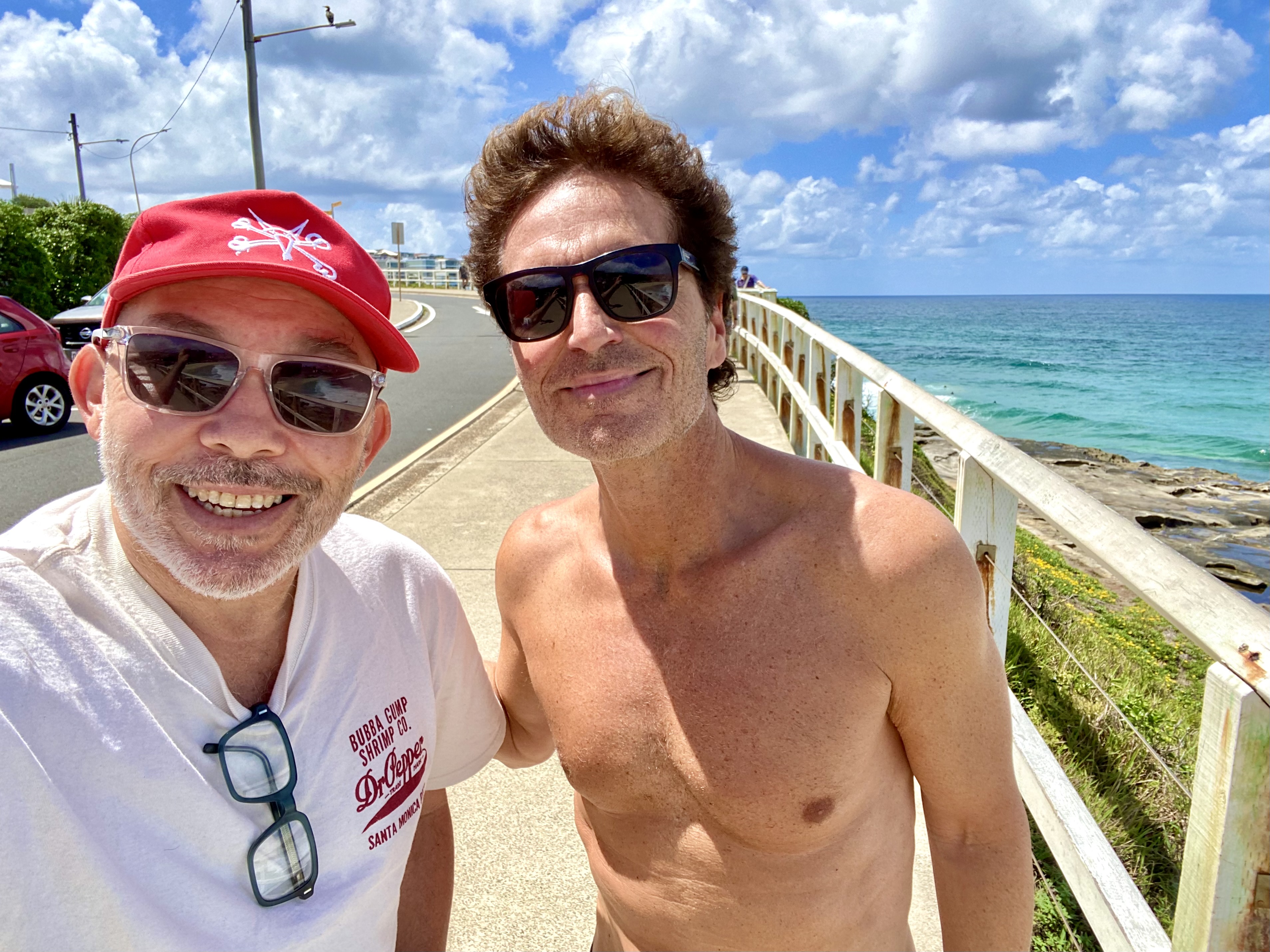
Aussie summers are notorious for taking heat to the extreme, and heatwaves often dial that intensity all the way up to 10. They also send us heading straight for our air conditioner remotes to bring some much-needed comfort to our homes.
In these instances, the trusty air conditioner really works to the max to cool the house. However, an inefficient system will often struggle in extreme heat, leading to higher energy bills, diminished cooling effectiveness and possible system failures.
The good news is that, with just a few basic steps, you can help your aircon run smoothly and efficiently during these extreme weather conditions. A well-maintained air conditioner not only keeps your home cool but also extends the life of the system and your wallet.
Being proactive before a heatwave hits means you stay cool without the stress.
What Is A Heatwave?
Since we’re talking heatwaves, let’s first understand and determine exactly what a heatwave is.
The Bureau of Meteorology (BOM) considers a heatwave to be an extended period when both the maximum and minimum temperatures are uncharacteristically hot for three days or more. It’s not just about the maximum temperature of the day; equally as important is how much the weather cools down overnight and can therefore provide respite from the heat.
BOM classifies heatwaves into three categories:
- Low-intensity heatwaves (the most common in Australia).
- Severe heatwaves (less common but more challenging for vulnerable people).
- Extreme heatwaves (very rare, but when they happen they can be a problem for anyone who doesn’t take precautions).
With that in mind, here are 6 ways to get the most out of your air conditioner even when the mercury really pushes the limits.
1. Set Your Thermostat For Efficiency
The first, all-important step is to correctly set your thermostat. This can make a significant difference towards cooling your home without overworking your air conditioner.
During a heatwave, it’s tempting to turn the temperature down but this will make your system work harder, resulting in higher bills and strain. Mr Emergency Air Conditioning recommends a thermostat setting of between 24-26°C, considered to be the ideal temperature for efficiency and comfort. Every degree lower that you set your thermostat drives up your energy consumption by up to 10%.
You can also help to get things working in your favour by using a programmable or smart thermostat. This adjusts the temperature according to your schedule so your air conditioner works efficiently when you need it most. Keeping doors and windows closed and using ceiling fans can also help maintain a consistent temperature so your air conditioner doesn’t have to work hard to keep up.
2. Regularly Clean or Replace Your Air Filters
Your air conditioner relies on clean air filters to run efficiently and effectively, particularly in the middle of a heatwave. Dirty filters restrict airflow, making your system work harder and with less efficiency. Consistent cleaning or replacement (depending on whether you have disposable or washable filters) improves performance, reduces energy consumption and maintains good indoor air quality.
- Check your filter monthly – Dust and debris can build up quickly, especially in summer.
- Replace or clean as needed – You should replace disposable filters every 1-3 months, while reusable filters need regular washing.
- Choose a good filter – HEPA or electrostatic filters can capture finer particles, giving you better air quality.
- Ensure proper installation – A poorly fitted filter won’t trap dust effectively, reducing efficiency.
Clean filters help you to avoid system breakdowns, and ensure your air con is better able to cool your home when you need it most.
3. Maximise Airflow and Insulation
Optimal airflow and insulation help your air conditioner cool your home more efficiently during a heatwave.
For ducted systems, blocked vents can restrict airflow and make your system work harder. Ensure you don’t have any furniture, curtains or rugs blocking airflow and keep your doors inside the house open to allow cool air to circulate.
Insulation also plays a big role in temperature control by reducing heat transfer. Well-insulated walls, ceilings and windows help to keep a consistent indoor climate, so your air conditioner doesn’t have to push itself to the limit. A ceiling fan can also enhance airflow by evenly moving cooled air throughout the room, so you can lower your thermostat settings.
Simple tweaks can ease the load on your system.
4. Reduce Indoor Heat Buildup
Keeping heat buildup inside your home to a minimum helps your air conditioner cool your home more efficiently during a heatwave.
We recommend:
- Using high heat-generating appliances like ovens, stoves and clothes dryers in the morning or evening when outdoor temperatures are lower.
- Switching to LED lighting instead of incandescent bulbs.
- Using curtains, blinds and reflective window films to block direct sunlight and prevent rooms from heating up during the day.
- Opening windows in the evening, if possible, to let cool air in.
- Using exhaust fans in kitchens and bathrooms can also help remove excess heat.
Simple changes like these can reduce the load on your air conditioner. It means your home stays cooler without overloading the system.
4. Book a Service with a Licensed Technician
Regular servicing and maintenance by a licensed aircon technician keep your system running at its best during extreme heat.
Dust, dirt and debris can gradually affect your air conditioner’s performance, making it work harder and more prone to breakdowns. A licensed professional will examine, clean and (if needed) replace key parts so your system can cool your home when you need it most. They can also detect minor signs of trouble before they become major problems.
DIY maintenance like cleaning filters helps but a thorough check-up ensures refrigerant levels, coils and electrical connections are in top shape. Booking a service before summer arrives means your system is ready for heatwaves without unnecessary strain or surprises.
5. Check Your AC’s Performance and Energy Consumption
Finally, it’s worth monitoring your air conditioner’s performance and energy consumption to nip inefficiencies and breakdowns in the bud.
If your system takes longer to start cooling, can’t maintain a steady temperature or makes unusual noises, it’s probably working harder than necessary. Unexpected energy bill increases are another red flag. Check for airflow issues, clogged filters or blocked vents and listen for rattling or hissing sounds that could be a refrigerant leak. Smart energy monitors or modern AC units with built-in tracking can help you spot inefficiencies early.
Fix small problems before they become big ones and your system will stay energy efficient and reliable – even during the next heatwave.
6. Stay Cool and Keep Your AC Running
A heatwave will certainly test your air conditioner. With some minor tweaks and habit changes though, you can help it run efficiently all summer.
Setting the thermostat wisely, cleaning filters and reducing indoor heat buildup all ease the load on your system. Good airflow and insulation improve cooling efficiency and regular service by a licensed technician ensures everything runs smoothly. Monitoring performance and energy use helps catch small problems before they escalate.
These simple things mean you’ll stay cool during extreme heat and extend the life of your air conditioner. A little effort now means a cool and stress-free summer ahead.











